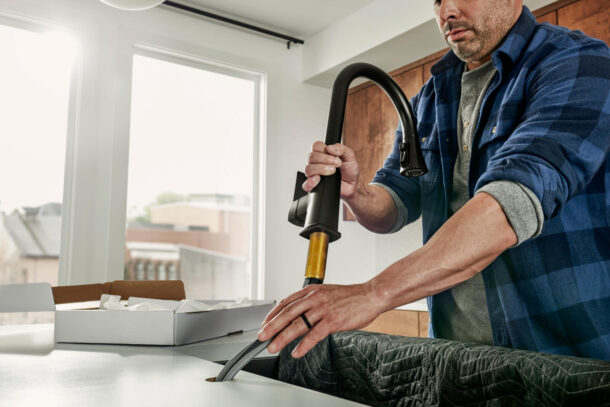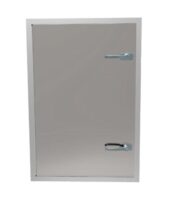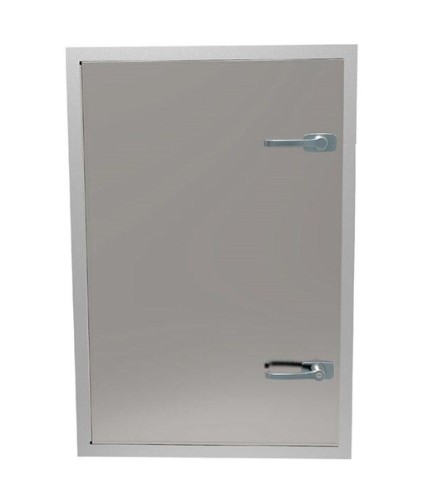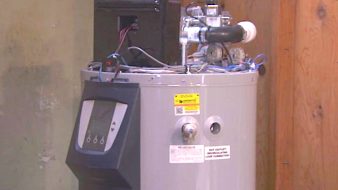Donate demo models, extra inventory, tools and building materials during the month of August in support of Greater Cleveland’s Habitat for Humanity. Sonnhalter, a communications firm marketing to the professional tradesman in construction, industrial and MRO markets, will be hosting its Annual Tool Drive. This year marks its sixteenth year in partnering with Greater Cleveland Habitat for Read more
repair

Donate demo models, extra inventory, tools and building materials during the month of August in support of Greater Cleveland’s Habitat for Humanity.
Sonnhalter, a communications firm marketing to the professional tradesman in construction, industrial and MRO markets, will be hosting its Annual Tool Drive. This year marks its sixteenth year in partnering with Greater Cleveland Habitat for Humanity. Since 2010, Sonnhalter has raised $567,000—more than half a million in donations for this cause.
Sonnhalter’s Annual Tool Drive runs Friday, August 1 through Sunday, August 31. All organizations, businesses and manufacturers are encouraged to donate demo models, extra inventory, tools and building materials to the Tool Drive. Donations will benefit Greater Cleveland Habitat’s mission of building homes and empowering families with safe and affordable home ownership.

“Each year, we are incredibly impressed by the remarkable generosity of Northeast Ohio and the trades community. It is a powerful testament to what can be accomplished in the name of a greater cause such as supporting Habitat for Humanity,” said Matt Sonnhalter, vision architect at Sonnhalter. “With the annual outpouring of donations and commitment to the Tool Drive, we have been able to donate more than $567,000 to this shared purpose. With continued support and momentum, we are setting our sights even higher this year!”
The Sonnhalter Tool Drive encourages those within the trade industry to look through their warehouses for extra inventory and overstocked tools or items that they would be willing to donate.
Greater Cleveland Habitat for Humanity has helped more than 300 Habitat homeowners, including over 1,000 children, have a safe and decent place to live. The donated items will be used for Habitat for Humanity projects or will be sold at one of the organization’s three ReStores, discount home improvement stores that serve Cuyahoga and Lorain Counties. Proceeds from ReStore sales are used to help Habitat build and rehabilitate homes for those in need.
“This partnership is a testament to Sonnhalter’s deep commitment to both the community they serve and the environment through the items they help divert from landfills,” said Laura Potter-Sadowski, director of ReStores at Greater Cleveland Habitat for Humanity. “Their Annual Tool Drive is something we look forward to every year. It’s a meaningful way to engage with supporters beyond the walls of the ReStore.”
To watch the Sonnhalter Annual Tool Drive video: https://www.youtube.com/watch?v=YC79aXUTD1A
For information on how you can participate in the Sonnhalter Tool Drive, or to coordinate larger shipments, i.e., pallet size, please contact Rosemarie Ascherl-Lenhard from Sonnhalter at 216.242.0420 x130 or rascherl@sonnhalter.com. To make a monetary donation, please make checks payable to “Greater Cleveland Habitat for Humanity.”
For more information on the Tool Drive, visit: www.Sonnhalter.com/tooldrive.

Running a plumbing business would be much simpler if you could handle only one bathroom at a time, but it does not always work that way. At times, you will need to manage the work for multiple bathrooms at the same time, often requiring travel to different locations. Multi-bathroom projects can be a way to Read more
Running a plumbing business would be much simpler if you could handle only one bathroom at a time, but it does not always work that way. At times, you will need to manage the work for multiple bathrooms at the same time, often requiring travel to different locations. Multi-bathroom projects can be a way to expand your clientele and revenue, but they require different approaches to management. By considering these tips, you can streamline your workflow and manage the problems that come up when handling multi-bathroom projects.

Anticipate Risks
Every project has risks that can delay work or even cause the project to fail. Anticipating these risks in advance gives you an opportunity to evaluate which ones need additional planning to avoid. Problems come from a variety of places and may include:
- Trouble getting materials
- Changes in price due to rapid inflation of a particular component
- Difficulty securing services of a subcontractor
- Inclement weather that prevents work
- Equipment downtime for maintenance or repair
For each risk, do some research and estimate whether you need to plan ahead. When in doubt, try to order materials and secure labor services as early as possible, and build in extra time to complete the project.
Create Efficient Schedules
Creating an efficient schedule for bathroom remodeling becomes more complicated when you have multi-bathroom projects. Consider itemizing the tasks for each bathroom so that you can break it down by the work and the type of service provided at any time. Create time estimates for the work needed at each location and be sure to build in time to get from one place to another. Avoid overbooking your staff and subcontractors, as it is more likely to result in late shows and annoyed customers. Instead, consider using a time management tool that allows you to highlight each worker’s responsibilities so you can minimize overbooking.
Manage Material Allocation
Ordering a larger amount of supplies for multiple projects can save you money and time, but it requires a robust inventory management system. If your warehouse is an impractical place to keep your supplies during the project, consider designating a single spot for each project site to hold inventory. Remember to bring a little more than you need to account for damage or manufacturer defect in the materials. Perform a count of each item at the beginning and end of every day, to confirm that you have the right number of materials and components.
Monitor Each Project
Ideally, one person on your staff can monitor the status of projects as they progress. When you are knee-deep in a single task, it can be easy to forget responsibilities and other work you need to do for other stages. Assign someone who can maintain oversight of the entire project, possibly coordinating efforts between plumbers, subcontractors and customers. Use a system that allows you to update the status of the project at various benchmarks so customers can see how the project is going at a glance. Remember to look at the status regularly so you can make adjustments to timelines and schedules as needed.
Maintain Communication With Stakeholders
Proper communication is the key to making all the effort come together into a sleek project that pleases the customer. Without it, you run the risk of letting misunderstandings turn into problems or failures. Set aside time at regular intervals to communicate with staff, other plumbers, subcontractors and clients. Find out which communication methods are most effective and use them consistently. Leave enough time in your schedule to make phone calls or send texts and emails so you do not forget to provide an update.
Managing projects for multiple bathrooms can yield several benefits for plumbers, but they have unique needs. By following this advice, you can increase the quality and success of your next multi-bathroom project.

US Military Veterans Are Offered Special Hours to Help with Job Search To coincide with Military Appreciation month in May 2024, PumpMan, a leading provider of onsite maintenance, repair, and replacement of equipment used in water and wastewater systems, proudly announces that it will establish a special recruitment call center for US Military Veterans who Read more
US Military Veterans Are Offered Special Hours to Help with Job Search
To coincide with Military Appreciation month in May 2024, PumpMan, a leading provider of onsite maintenance, repair, and replacement of equipment used in water and wastewater systems, proudly announces that it will establish a special recruitment call center for US Military Veterans who are seeking employment. Veterans are encouraged to call in order to learn about the opportunities available throughout the PumpMan organization and to have a personal conversation with a PumpMan associate who can answer any questions they may have.

“At PumpMan, we value our veterans, and we greatly appreciate their service to our country,” said Donald C. Devine, chief executive officer, PumpMan, and a West Point graduate. “We have veterans working at all levels of leadership, as well as in our field operations, and we want to extend our heartfelt invitation to explore the possibilities of joining us! At PumpMan, we pride ourselves at creating a work environment that fosters and supports rewarding and successful careers for our employees. If there are veterans who are looking for employment, we urge them to take advantage of this unique opportunity during the month of May. We look forward to speaking with you and to welcoming you into the PumpMan community.”
The Call Center will be open on Wednesdays, from 9am – 12noon, EST during the month of May 2024 starting May 8th. Interested veterans should call (908) 625-0007. Additionally, US Military veterans can email their resume and questions to HR@pumpman.com.

In many coastal regions, the corrosive effects of saltwater can deteriorate the plumbing systems over time. To combat the massive damage, contractors, plumbers, and other relevant construction professionals often build plumbing systems in these areas with specialized materials and components that can withstand harsh conditions. One of the most significant components that play a critical Read more
In many coastal regions, the corrosive effects of saltwater can deteriorate the plumbing systems over time. To combat the massive damage, contractors, plumbers, and other relevant construction professionals often build plumbing systems in these areas with specialized materials and components that can withstand harsh conditions.
One of the most significant components that play a critical role in the durability and functionality of a coastal plumbing system is the exterior access door. In this blog post, you’ll discover the importance of exterior doors in coastal areas and how to properly maintain and repair it to keep or boost the value of your client’s water pipe facilities.
What is an exterior access door?
Exterior access doors can grant access to the interior of a building from outside. In the context of plumbing systems, exterior access doors are typically installed outside the establishment to provide easy access to the plumbing system.
You can often locate these doors near the main water shut-off valve, pipes, or other plumbing system components. Exterior access doors like Babcock-Davis coastal zone exterior access door may come in various sizes and materials, depending on the particular prerequisites of the plumbing system and the property itself.
Moreover, experts designed them to be durable and weather-resistant to stand firm against the intense weather conditions in coastal areas, where the doors are vulnerable to saltwater, wind, and other environmental factors.

Four crucial benefits of exterior access doors to coastal plumbing systems are:
- Inspection and maintenance: Exterior access doors authorize plumbers and maintenance personnel to inspect and perform plumbing system maintenance without entering the client’s structure. Regular upkeeping is especially vital in coastal areas where the saltwater can cause damage to the plumbing system in the long run, requiring periodic maintenance and inspection.
- Emergency access: In a plumbing emergency, like a pipe bursting or any significant leakage, exterior access doors give emergency responders quick access to your client’s central water system, allowing them to shut off the water supply and control further damage.
- Corrosion prevention: Exterior access doors can also help deter corrosion by furnishing a barrier between the plumbing system and the corrosive saltwater environment.
- Compliance with building codes: Installing exterior access doors for your plumbing system can help you comply with building codes. Part of these is the commercial establishments built around the coastal areas to ensure safety and maintenance standards compliance.
How to properly maintain or repair the exterior access doors in coastal plumbing areas?
Appropriate maintenance and repair of exterior access doors in coastal plumbing systems are crucial to guarantee the functionality and longevity of the coastal building’s plumbing system. Here are some tips to correctly maintain and repair the exterior access doors for your plumbing project:
- Tip #1 Regular Inspection: Advice your clients to make it a habit to inspect the exterior access doors, so they can secure that essential facilities are always in good performance condition. When checking, look for signs of wear and tear, such as rust, corrosion, or damage to the door or surrounding area. Ensure the door closes and seals adequately to prevent water from penetrating the plumbing system.
- Tip #2 Cleaning: Routine cleaning of exterior access doors is critical in coastal areas. The door isn’t safe from accumulating salt water and other debris, which can eventually lead to corrosion or further deterioration. Clean the door regularly with mild detergent and water to remove residue or buildup.
- Tip #3 Lubrication: Lubricate the hinges and locks of the exterior access door frequently to guarantee smooth operation. You must use a silicone-based lubricant to discourage corrosion and rust from building up.
- Tip #4 Repair or Replace Damaged Doors: If any wear, tear, leakage, or other damages are found during the inspection, repair or replace the damaged door immediately. Delaying repairs can lead to more severe impairments and expensive restorations.
- Tip #5 Upgrade to Corrosion-Resistant Doors: Consider increasing the quality of your project’s door to corrosion-resistant exterior access doors. These doors are made to defy extreme conditions in coastal areas and are less likely to corrode or rust in long-term use.
Take better of your exterior access doors and coastal plumbing system.
Regularly inspecting, cleaning, and lubricating exterior access doors, repairing or replacing damaged doors, and upgrading to corrosion-resistant doors can significantly contribute to always keeping the components performance of coastal plumbing systems intact. Remember to follow the tips we shared, so you can ensure that the exterior access doors in the plumbing system of your coastal projects are well-maintained and operating as intended.

If you’re having problems with your water heater, you’re not alone. Here are seven common water heater problems and how to fix them using a professional service. Not Enough Hot Water Your water heater might start having issues with temperature control. The most common problem is when the water isn’t hot enough. In such cases Read more
If you’re having problems with your water heater, you’re not alone. Here are seven common water heater problems and how to fix them using a professional service.
Not Enough Hot Water
Your water heater might start having issues with temperature control. The most common problem is when the water isn’t hot enough. In such cases, the first thing to check is the thermostat. Make sure it’s set to the correct temperature. If the issue persists, it may be time to contact professional water heater repair services.
 Leaking Water Heater
Leaking Water Heater
Although leaks are common, they also indicate a significant issue with the water heating system. Leaks usually indicate loose plumbing connections or a corroded water line, and it’s advised to turn off the power supply and call a plumber. Here are the most common causes of water leaks:
- Overheating,
- A bad gasket,
- Problems with the water tank,
- A stuck valve,
- Trouble with water pressure, etc.
Noisy Water Heater
Sometimes you might notice that the water heater is making peculiar noises. The primary reason behind this can be sediment build-up. The first thing you should do is try cleaning the sediment yourself and flush the water heater. If the problem persists, the sediment build-up might be too much, and it’s best to contact a water heater repair company.
The Water Heater Won’t Turn On
Next is when your water heater is simply not turning on. If that’s the case, check the circuit breaker and see if it’s tripped. In that case, flip it back on and then try again. If the issue persists, there could be a problem with the thermostat.
Discoloration
If you notice rusty water coming out of the tank, it may indicate corrosion, which means it needs a cleaning service.
Low Pressure
A drop in water pressure is another indication of a water heater problem. This might be because of hard water build-up in the tank, sediment accumulation, or blocked filters.
Malfunctioning Pilot Light
One common issue when servicing gas-powered tank heaters is a malfunctioning pilot light or burner. If the pilot light fails to turn on, contact your local gas utility company for servicing. Otherwise, the potential problem could be a defective thermocouple, clogged vent, burned-out orifices on the burners, or improper temperature control. Checking each element and adjusting the temperature when running hot water can help diagnose the root cause of these specific issues.
How To Fix A Water Heater?
Once you have identified the problem, you can begin to fix it.
For example, if the problem is with the pressure-relief valve, you can simply clean it. If the problem is with the heating element, you can replace it.
If you are unsure how to fix the problem, call a professional. Issues with water heating systems require technical expertise, and qualified professionals know how to fix them. Additionally, they are experts in replacing water heaters and have the tools to install them successfully. Most parts that they provide have long-term warranties.
Tips For Preventing Water Heater Problems
Once you have taken care of the persisting issues with the water heater, taking a few precautions is essential. Here are a few tips that you should keep in mind.
- Ensure that there is no sediment build-up in the tank.
- Always invest in a water heater according to the requirements. A small water heater shouldn’t serve a large family and may soon start causing trouble.
- It’s good to call a professional for regular water heater inspections and maintenance.
How To Choose The Right Water Heater?
You need to consider a few things when choosing a water heater.
- The first is how much water you need to heat. If you extensively use the water heater or you often have guests over, you’ll need a larger water heater.
- The second thing to consider is the type of water heater: electric or gas. Electric water heaters are cheaper to install, but gas water heaters are more efficient.
- The third thing to consider is the climate. A water heater is a must if you live in a cold climate.
Final Words
Following these tips, you should be able to troubleshoot and fix most water heater problems. If you’re still having issues or if your water heater is beyond repair, be sure to contact a professional.

 Leaking Water Heater
Leaking Water Heater